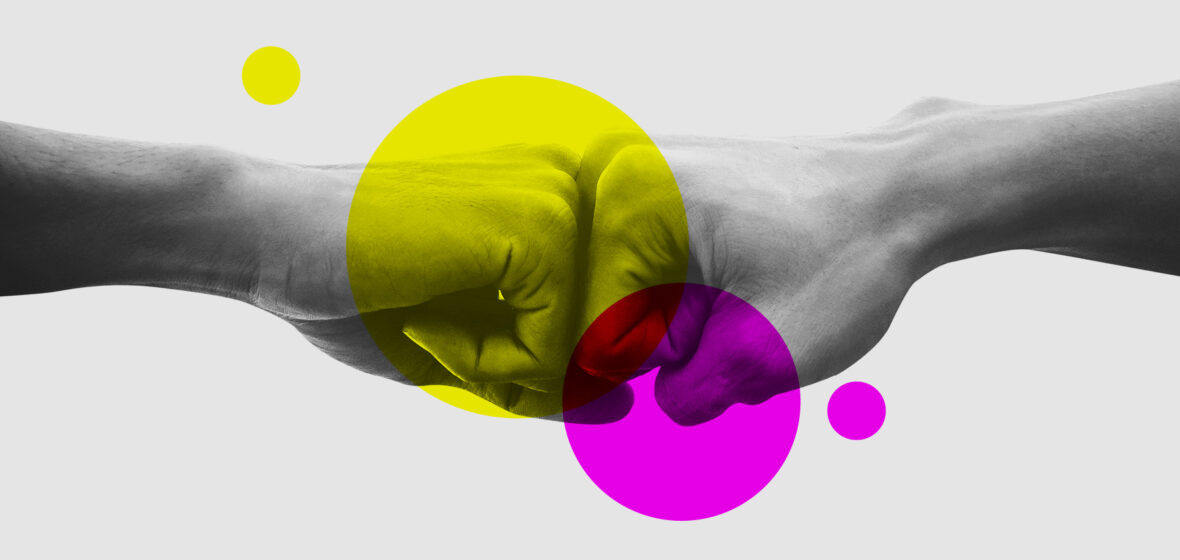This year, NSWYL is working with the Australian Centre for Disability Law (ACDL) as its Annual Charity. Established in 1994, ACDL is a specialist Community Legal Centre (CLC) that provides legal advice and assistance to people with disability and their associates in relation to disability discrimination matters. GEORGE STRIBLING, the Vice-Chair of our Human Rights Sub-Committee and a former volunteer with ACDL, sits down with ANNA NGUYEN, ACDL solicitor, and PEARL DAVIDSON, former ACDL volunteer, to find out more.
Tell us a little bit about yourself – how did you find your way to ACDL?
Anna Nguyen: My career in law has been predominantly focused on human rights and the representation of marginalised groups – after working as a refugee lawyer here in Australia, I relocated to Thailand and worked for a human rights NGO facilitating the resettlement of stateless asylum seekers in that country. Over a period of five years in Thailand, I was heavily involved in the promotion and protection of human rights in Southeast Asia, and I carried that experience with me back to Australia, and into the disability law space.
One of the reasons I came to the disability law sector, firstly with the Intellectual Disability Rights Service (IDRS) and now with ACDL, was the scale of disability discrimination in Australia – the Australian Human Rights Commission receives more discrimination complaints concerning disability than any other form of discrimination. Discrimination strikes at the very heart of being human. It’s harming someone’s rights simply because of who they are. To me, the current anti-discrimination laws in Australia are one of the most effective mechanisms in Australia to protect one’s human rights.
Pearl Davidson: I volunteered at ACDL in 2021, while completing my Practical Legal Training (PLT) through the College of Law. Prior to volunteering at ACDL, I completed an Arts/Law Degree at the University of Sydney and worked part-time in a boutique firm specialising in wills and estates. Most of my university studies were also part-time, due to developing, then managing, several chronic illnesses which at one point left me housebound and unable to study for around 12 months. I now work part-time as a solicitor in the Child Protection practice group at the Crown Solicitor’s Office.
What drew you to work at ACDL, or to work in CLCs more broadly?
AN: CLCs serve as a bridge for people who otherwise could not easily access justice, whether that’s due to financial hardship, lack of education, or other intersectional issues such as disability or cultural background. Following my five years in Asia, it was only natural for me to return to Australia and work in CLCs – to use my skills and knowledge to help those groups who are most in need of legal advice and assistance.
I was drawn to ACDL not only because of their specialised expertise in disability discrimination, but also because of the Centre’s mindset that to enact change, you need to change one’s perspective of people with disability through training and education. People with disability are disadvantaged not because of their differences, but because of society’s failure to accommodate those differences. ACDL plays an important role in working towards the protection and promotion of the rights of people with disabilities, and in changing societal attitudes.
PD: I knew early on in my legal studies that I wanted to work in an area of law where I could make a tangible difference to people’s lives and in a place offering a good work/life balance. I was also keen to gain experience in a variety of practice areas and differently sized workplaces. I have been fortunate in my experience with disability to have strong support systems which have enabled me to finish my tertiary education. However, I am acutely aware that not everybody with a disability has access to these resources, and part of what drew me to ACDL was a desire to play a small part in helping rectify the disadvantages and discrimination that people with disabilities often face.
More pragmatically, volunteering at ACDL was my first return to working in a law firm since being diagnosed with a second chronic illness in 2016. Although I am grateful to have supportive present and former employers, after having a large gap in my employment history due to the severity of my illnesses and requiring adjustments including reduced working hours, I found it difficult to find the right working environment which would give me experience in new areas while also supporting my return to work. I (correctly) reasoned that an organisation specialising in assisting people with disabilities would be ideal in supporting my re-entry to the workforce.
Is there a particular client, matter, or outcome from your time at ACDL that stands out?
AN: For me, it’s not necessarily the size of the financial payout which is memorable, but rather the impact that my assistance has on my clients. One of my clients suffers from complex post-traumatic stress disorder and I assisted her with a discrimination complaint to Anti-Discrimination NSW (ADNSW). The other side’s position was inconsistent, accusatory of my client and denied all allegations of discrimination, to which my client’s immediate reaction was to withdraw the complaint. I knew she didn’t really want to withdraw the complaint and her reaction was a result of years of abuse and trauma. Although she was resistant to persevere, I pushed her to continue, and explained I would continue to advocate on her behalf and minimise any contact she would need to have with the other side. She trusted me and we pushed through with the complaint.
The other side eventually agreed to offer a statement of apology and financial compensation that would allow my client to see a therapist for up to a year. She was over the moon with the outcome and sent me the most heartfelt email, saying “you will never understand just how much you have done for me, not just on a practical level but also in a therapeutic level. Having you stand up for me has done more for me in healing aspects of my trauma than years of therapy ever could”. I will never forget the impact I had on that client, and it’s moments like these that remind me why I have chosen a career in this area of the law.
PD: ACDL deals with all sorts of matters, from one-off referrals and advice through to representing clients in complaints made to ADNSW, the AHRC, courts and tribunals. Some smaller matters that were satisfying involved clients being able to bring assistance animals onto public transport or other public areas after initially being denied access, and schools and preschools allowing reasonable adjustments for students with disabilities and issuing apologies in situations where students had experienced discrimination.
One larger matter during my time at ACDL that stands out is a client whose employer refused to allow her to work from home after she had recently recovered from cancer and life-threatening complications from chemotherapy that left her immunocompromised and requiring the use of a stoma bag. This client was on leave without pay during this period despite being medically cleared to return to work from home, and ACDL was able to represent this client in the Fair Work Commission and reach a hugely beneficial settlement with the employer. The client was very thankful for ACDL’s assistance in achieving this result, and sent a beautiful card and food hamper to show her appreciation.
Would you recommend volunteering with ACDL?
PD: I would definitely recommend that law students or solicitors volunteer with ACDL. It is a fantastic way to help make a difference in the lives of some of NSW’s most vulnerable people, who might not otherwise be able to afford legal advice or representation.
There are also numerous personal benefits to volunteering at ACDL. For me, volunteering was an excellent learning experience, with ACDL offering flexible working hours, a supportive and friendly workplace, regular feedback, and opportunities to attend training sessions. Law students can also count their volunteer hours towards their PLT placement.
I learnt so much during my time at ACDL and grew in confidence speaking to multiple clients each day. These skills are of utmost importance to all lawyers and very transferable into a variety of different practice areas. I believe the experience I gained at ACDL and the support and encouragement of its solicitors greatly assisted me in obtaining paid employment as a solicitor.
What are, in your view, the most pressing legal issues facing people with disability in 2022?
AN: Since the lifting of COVID-19 restrictions began late last year, we are starting to see more of the spill-over effects of the pandemic on people with disability. While the easing of restrictions has allowed most of society to return to relative normality, people with disability are starting to experience heightened social and legal ramifications – for example, many people with disability and their families are still having to isolate and limit their social interactions, meaning that for parents and children with disability there is no choice but to continue home-schooling. Despite this, schools are no longer sending work home for people who are home-schooling for long periods, meaning that many of these families must formally register for home-schooling, which can be a long and difficult process.
There is also an ever-growing expectation from employers for staff to return to the office on a full-time or hybrid basis, which is simply not achievable for some people with disability who are extremely vulnerable and cannot reasonably expose themselves to a risk of infection on public transport or in the office. One of the best things that has come out of this pandemic is the realisation that many jobs can be performed remotely, but despite that, some people with disability are still prevented from accessing these widely available adjustments that would allow them to continue their role from home.
Where can people go to find out more about ACDL, to find how they can volunteer at the Centre?
AN: If you are a law student, you can find out more about ACDL, including volunteering opportunities, at https://disabilitylaw.org.au/.
Otherwise, if you work at a corporate law firm, please talk to your workplace about the possibility of undertaking a secondment with the Centre. We provide great opportunities to learn on the job, have direct client interaction and make a difference in someone’s life. Also, talk your Pro-Bono Coordinator or Pro-Bono Partner about ACDL about establishing a referral pathway. This means that if we cannot assist a client, due to our own capacity issues or lack of resources, we could refer some of these matters to law firms that may be able to assist on a pro bono basis.
Further information about ACDL, including volunteer opportunities, can be found at https://disabilitylaw.org.au/
Special thanks to Anna Nguyen, Pearl Davidson and Mark Patrick for their assistance in the preparation of this article.




